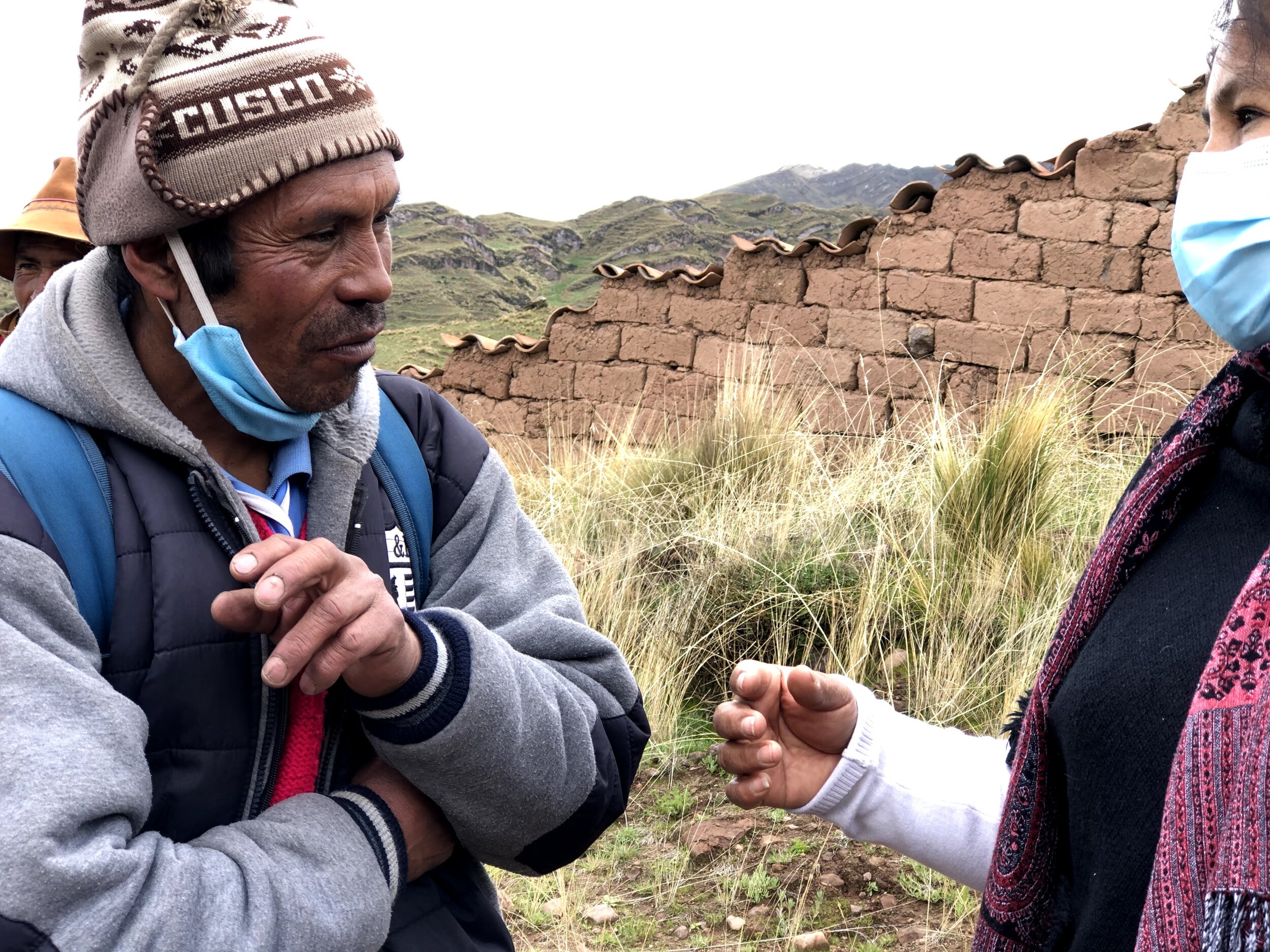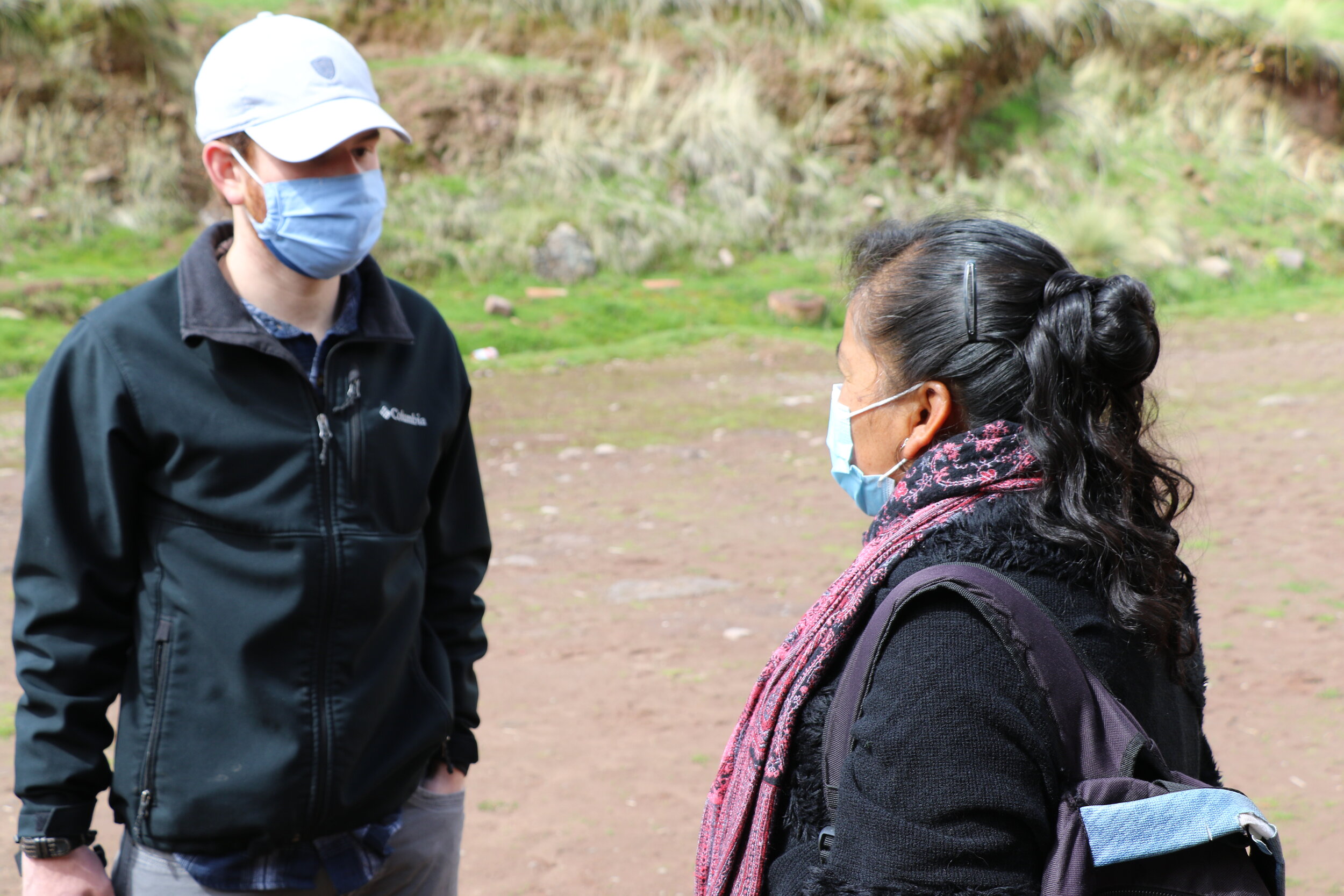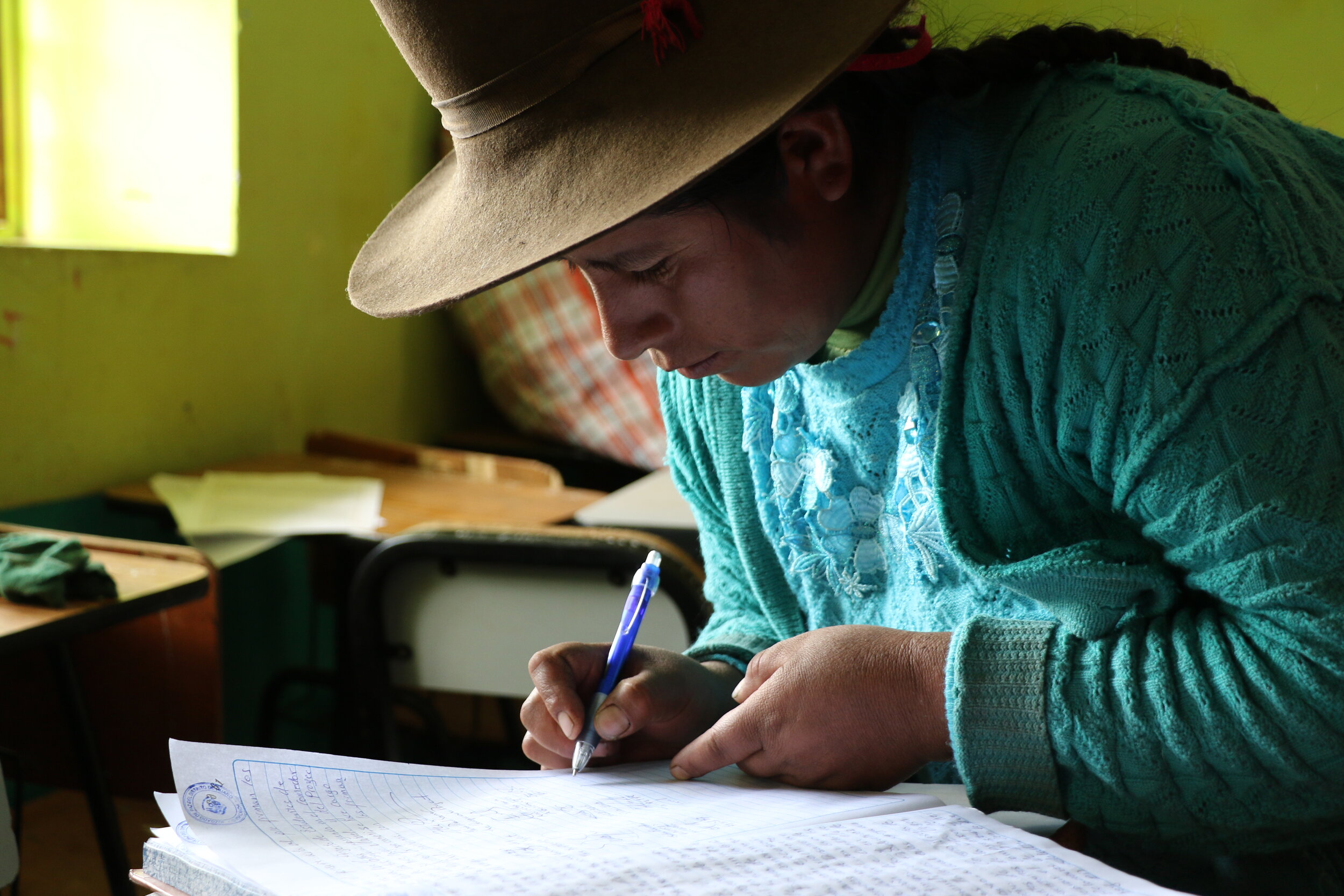
The Community
Situated above 14,000 ft, Sullumayo is a rural community in the Huaro municipality of Quispicanchi. The community consists of a network of “sectors,” each one comprised of between three and eight families. These sectors can be up to two hours walking distance from one another, often with vast disparities in livelihood existing between them. People living in more remote sectors often experience increased levels of insecurity, isolation, and lack of access to basic necessities.
The primary industries and the means for livelihood in Sullumayo are farming and raising livestock. Due to the altitude, the ability to farm a diversity of crops is limited. Most crops consist almost exclusively of potatoes which also significantly limits the nutritional options available to children and adults living in the region. Families may supplement their nutrition by purchasing small quantities of additional produce in street markets roughly an hour and a half by car. Very few if any families have access to their own transportation and rely entirely on “collectivos,” vans and trucks, which occasionally traverse the region. Most families maintain herds of alpaca, sheep, goats, and cows of varying sizes. This livestock provides an important source of protein as well as income for families. Additionally, many families will produce traditional textiles for their own use from the wool and coats of the alpaca and sheep. In some cases families may sell the material they produce in local markets.
At the center of the community is a partially government funded school, “Virgen del Rosario,” with three levels: inicial (infant - pre-k), primaria (kinder - grade 6), and secondaria (upper school, grades 7 - 12). The upper school consists of roughly 70 students. Depending on the proximity of their sector, some students may walk up to two hours, one way, to attend classes. For these students it often means leaving their home before sunrise to arrive at school on time and then leaving school early to complete their daily chores, caring for the family’s livestock, before dark. Regardless of their circumstances few students, if they complete their schooling, will ever leave the region.




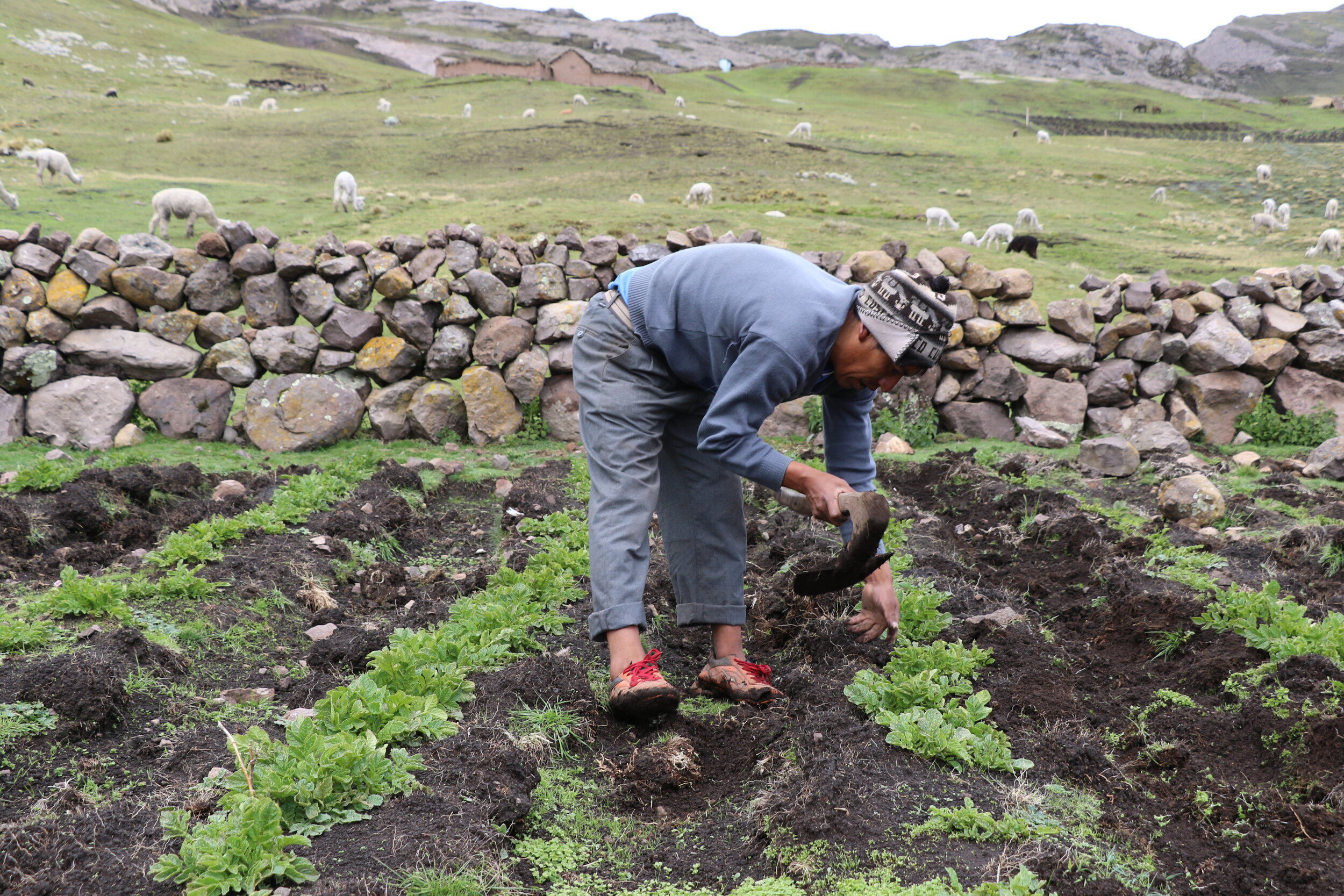






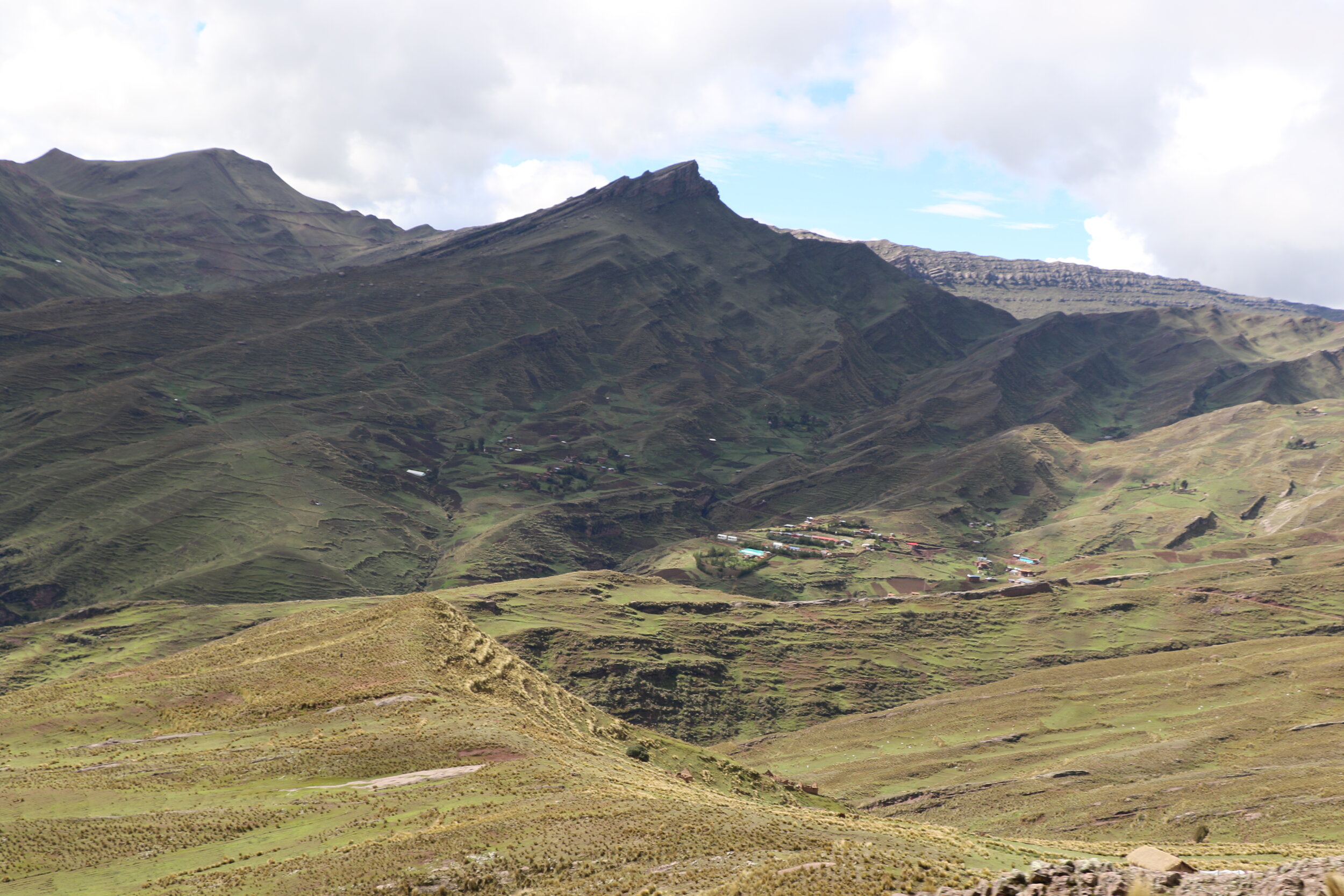






Project Overview
INITIATIVE #1: Support Improvements, both Physical and Instructional, at the Virgen Del Rosario School
The Virgen Del Rosario School in Sullumayo functions as the center of the community, providing education for roughly 60 high school students, 60 primary school students, and 30 pre-kinder age students. The Project is collaborating with school leaders, the parent board, and officials from the Ministry of Education in the creation of a three year phased strategy to improve the school’s infrastructure along with improvements to the school’s curriculum. Infrastructure improvements may include the construction of new classrooms, school kitchen, a sustainable trout farm, and dormitories. Curricular improvements include new before and after school vocational training programs, along with new pedagogical models which respond to the unique challenges and way of life in Sullumayo. Our efforts are also being advised by staff from CCAIJO, a Jesuit social work, dedicated to the improvement of the lives of individuals living in Quispicanchi through the implementation of sustainable projects and the Wayra Association, a team of social workers dedicated to accompanying vulnerable families and at-risk youth.
INITIATIVE #2: Implement Programs Which Support Personal Health and Hygiene
Simple hygiene practices like hand-washing and tooth-brushing are uncommon in rural communities, but when consistently implemented can have a direct impact on an individual’s health. In collaboration with the Center of Health and teachers from the “Virgen del Rosario” school, Initiative #2 seeks to implement regular hand-washing and tooth-brushing practices integrated into the school day. Health workers will train, equip, and empower school staff to guide students in daily hand-washing and tooth-brushing in connection with the regularly scheduled lunch period. Additionally, the Quispicanchi Project will work with school leaders to determine how best to reinforce and support these programs through the installation of additional washing stations on campus grounds. Our hope is that these best practices will extend beyond the school and into the home, benefitting the health of the entire family.
INITIATIVE #3: Collaborate with Trained Social Workers in Family Accompaniment and Welfare Visits
There is undoubtedly a link between a child's success in school and the relative stability of their home life. However, in rural areas such as Sullumayo, family violence and instability contribute even more to a struggling education system. These problems disproportionately affect women, who are often abused, both psychologically and sexually, by their partners. Additionally, many families lack of means/tools necessary for proper communication in order to mitigate conflict within the home. Alcoholism, especially present in men, coupled with a sexist culture, only increases the prevalence of these issues. In Initiative #3, we seek to partner with the WAYRA Association, addressing these issues at an early age, through family and educational accompaniment. In collaboration with the school community, social workers from WAYRA will offer seminars focused on healthy family living environments, self-esteem, women’s and mental health as well as provide direct psycho-social attention where needed.
INITIATIVE #4: Establish New, Sustainable, Sources of Income for Local Families
The Quispicanchi Project, in all of its work, seeks to be culturally responsive and implement works which support and celebrate local culture, traditions, and practices. In many rural communities, families create textiles for clothing or for use in their agricultural and farming practices. Occasionally families will trade or sell the products they create but have limited or no access to textile markets outside their community. These markets could provide them with critical sources of additional income necessary to purchase simple things like vegetables, bread, milk, and sugar. Objective #4 seeks to collaborate with local families in the production of these unique, one-of-a-kind textiles, and then work with our regional partners to cultivate new markets locally and abroad.




